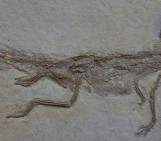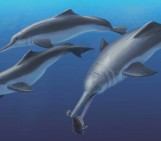“Every day, people are denied access to something they have a right to.”
That’s the opening line from a new appeal from students Joe McArthur and David Carroll. Open Access describes a form of publication of research where articles are made instantly available for free, and with unlimited reusability rights, as long as the source is attributed. There are many pseudo-open access ‘definitions’ out there from publishers to obfuscate its use, but this is the only real, least restrictive one.
There has been a global open access movement over the last 10-15 years, which has accelerated so rapidly in the last year or two that many research funders and institutions, as well as government bodies, have developed open access policies. However, despite this progress, large commercial publishers like Wiley, Taylor and Francis, and Elsevier are still the most profitable industry in the world (with margins even higher than Apple), the majority of their profits coming from obscene charges for pdfs and library subscriptions for research articles and journals.
However, things are slowly changing. Publishers like PeerJ, F1000, PLOS, the BMC series, Frontiers, SAGE, the open Library and a host of new, more efficient (both financially and academically) platforms have emerged – the only resistance to these, and the reason why the aforementioned mega-publishers still survive and thrive off funds that could be going towards research, is the stubbornness of academics. And also simply for not knowing that they exist – unknown unknowns!
The open access button is a project designed to track when ever someone hits a paywall – is refused access to research – which inhibits them from learning, teaching, researching, and developing new ideas or technologies. At the moment, it is only beginning to scratch the surface of the barriers that mainstream publishers place in front of knowledge, but the second version will be much more efficient, and provide a tool, or piece of evidence, that the research community and others can use to demonstrate that the drivers for the publishing community (profit) is not aligned with the ideals of the research community – the maximum dissemination of research for the maximum possible benefit.
If you care about access to research, often which will have been paid for by you through taxes, do help support the button team – it’s worth it.



Pingback: The Week in Links – April 26 | Open Access Button blog
Leonardo Uieda
I don’t think it’s just stubbornness and lack of knowledge. A big weight there is funding and career development incentives. Often times (at least in Brazil), how much funding and how fast you progress depend on the rank of the journals you publish in. The rank used in Brazil is the Qualis (http://qualis.capes.gov.br), an index going from A1 (the best), A2, B1, B2, etc. At UERJ, the university I work in, productivity is evaluated based on this index. Unfortunately, most OA journals in my area (geophysics) have very low ranks. The Solid Earth, for example, is only B6 and thus contributes close to nothing. I’d love to publish there, it’s a great journal and I really love the idea of the review process. But for me, it makes much more sense to publish in Geophysics, or the Geophysical Journal International. Without funding, I can’t even buy ink for my printer or a chair to sit on (I’m using a borrowed one), let alone pay for travel to meetings and computers for my future students.
So I think that changing incentives is fundamental. You get what you select for.
Harbel Tea Suppliers In India
Very Nice blog.Thank You !!!
O Bothe
I guess I miss something, but why include SAGE in the whitelist? Quite persistent paywalls – for me at least.
Jon Tennant
As far as open access beyond the physical sciences, I don’t think they’re doing too badly! 🙂
http://www.uk.sagepub.com/aboutus/openaccess.htm